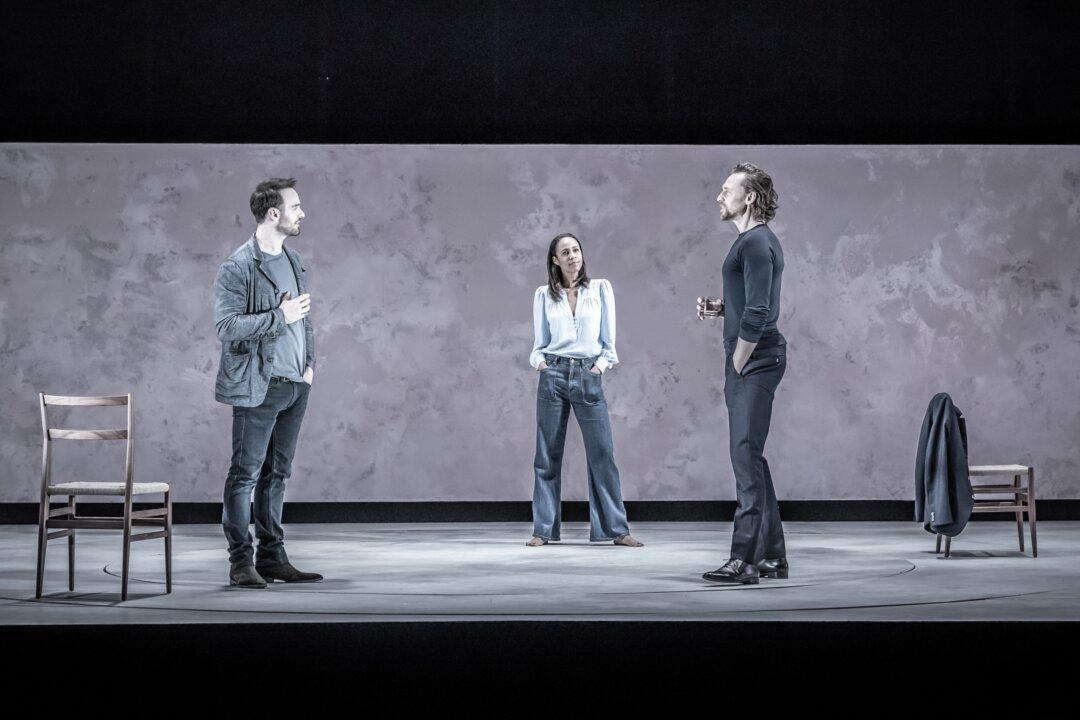NEW YORK—By the end of the Broadway revival of Harold Pinter’s 1978 play “Betrayal,” there are no winners, only survivors. The work has arrived in New York, with the cast intact, after an acclaimed run in London.
As gallery owner Emma (Zawe Ashton) explains to her former lover Jerry (Charlie Cox), her marriage of more than a decade to Robert (Tom Hiddleston) appears to have come to an end. During this marriage, there have been infidelities on both sides, most importantly the married Jerry’s seven-year affair with Emma.





